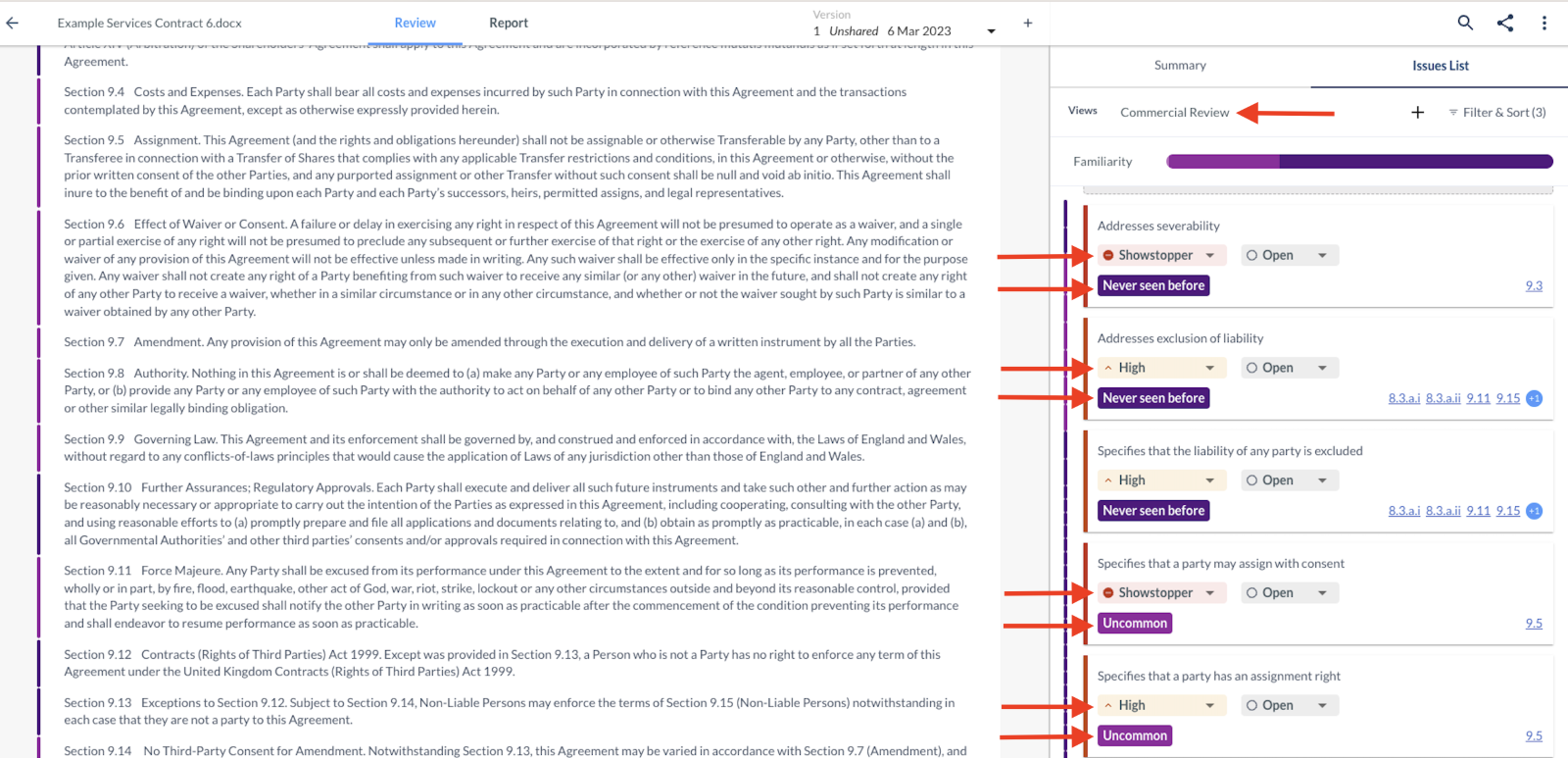A key tool in any contract review is knowledge of what’s been before. What language do we commonly accept for a given provision? How does the language compare to other similar contracts previously negotiated by my firm or organisation?
That knowledge is often lost through natural attrition. But it’s that knowledge which enables both efficiency and commerciality during the negotiation process.
Understanding your organisation’s market is invaluable
Whilst a straightforward comparison of a third-party document against your standard template is helpful, knowing the extent to which your organisation has accepted alternative drafting in the past gives you the context you need to make commercial decisions during the contract review process.
That’s why we’re launching our new feature, Familiarity Intelligence. ThoughtRiver’s AI reads thousands of paragraphs from your template and signed contracts, and categorises them according to their similarity to one another. This provides you with a tool that helps you assess your current contract according to any template contracts, as well as the standards of other previously negotiated and signed contracts in the same deal type. Familiarity Intelligence will help ensuring consistency across your negotiations.
Built into Familiarity Intelligence is a familiarity bar and heatmap which act as guides to help you quickly differentiate and navigate standard template language, common, uncommon language, and language never seen before.
Combine the power of risk and familiarity insights
Language insights alone are not always enough. As practicing lawyers, you’ve told us of the power of combining language insights with playbook compliance.
Your policy can tell you whether a provision does or does not comply with your firm or organisation’s playbook, but that isn’t always the full story. A 'Low’ or ‘OK’ provision in your playbook may have language that is ‘Uncommon’ or ‘Never Been Seen Before’ in other signed contracts, and that elevates the overall risk profile. Alternatively, a provision classified by your playbook as a ‘Showstopper’ may have ‘Common’ language indicating it’s accepted in many of your existing signed contracts, allowing you to downgrade your concerns. One-click to the Commercial Review view ensures these insights help you focus time and attention on the most contentious areas of the contract.

Focus time and attention on the most contentious areas of the contract
Using the Commercial Review in Reports, you can instantly generate a report to share details of the most contentious provisions in the contract with the other side, or internally.

Adjust your Playbook using the power of Familiarity Intelligence
Stay ahead of the curve by using your reports to spot trends in divergence from template provisions.
Sustained departure from your organisation’s template wording for a particular provision may indicate that the ‘template’ is not in reality ‘standard’ within the organisation anymore, prompting a general change in negotiation stance going forward, and ultimately, an update to your template to reflect the reality of current practice.
Interested in learning more? Join us on Thursday, 6 July for a free webinar to learn how Freeths is maximising organisational knowledge sharing to enable efficacy and commerciality using Familiarity Intelligence. Learn how you can implement AI at your law firm to accelerate operational performance and client outcomes.
%20(Instagram%20Post%20(Square))%20(535%20%C3%97%20379px).png?width=535&height=379&name=How%20to%20maximise%20organisational%20knowledge%20sharing%20to%20enable%20efficacy%20and%20commerciality%20with%20AI%20(400%20%C3%97%20200px)%20(Instagram%20Post%20(Square))%20(535%20%C3%97%20379px).png)

